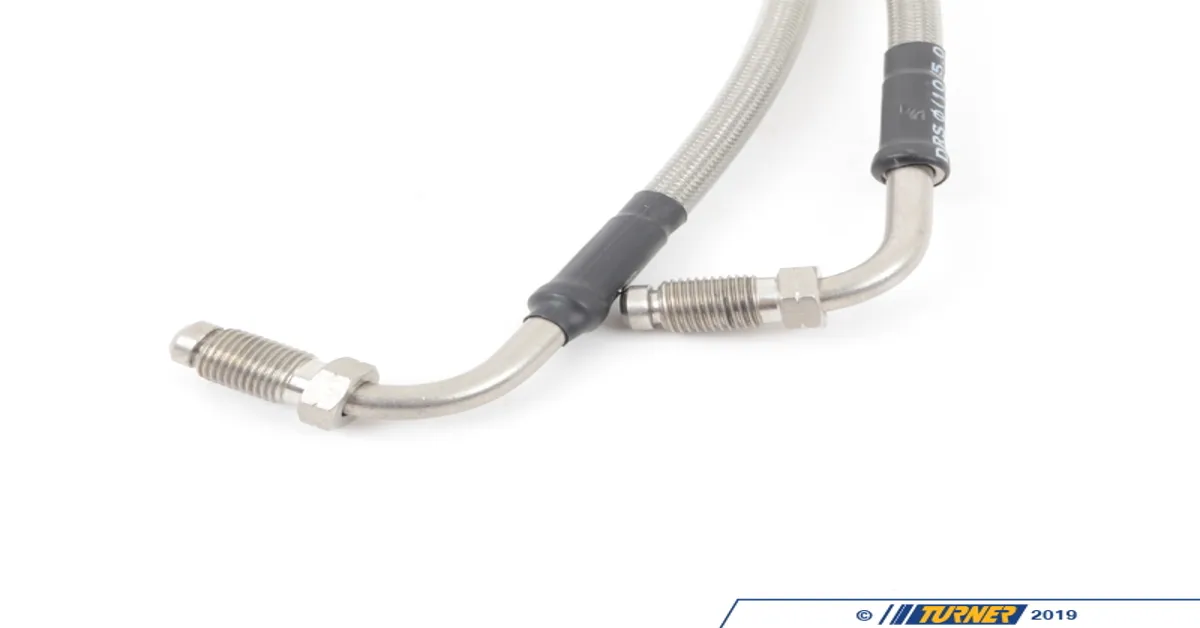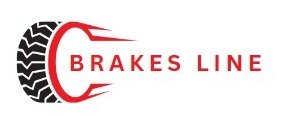As the sun slowly sets on the city, the streets are filled with the sound of revving engines and the smell of burning rubber. The night is young, and the adrenaline is high as car enthusiasts gather for a thrilling night of racing and showing off their prized possessions. Among the crowd, you spot a sleek and powerful BMW, its brake lines gleaming under the streetlights.
But what makes these brake lines so important? In this blog, we’ll take a closer look at the crucial role that BMW brake lines play in keeping your car safe and performing at its best. So buckle up and get ready to learn more about this essential component of your beloved BMW.
Key Takeaway
- BMW brake lines are an essential component of a car’s braking system
- They are responsible for transmitting brake fluid from the master cylinder to the brake calipers
- BMW brake lines are made of flexible metal or rubber and are subject to wear and tear over time
- Regular maintenance and inspections of brake lines are important for ensuring the safety and performance of a car
- Replacing worn or damaged brake lines is crucial for preventing brake failure and accidents
BMW brake line
The brake line of a BMW is a critical component in the overall functioning of the vehicle. It is responsible for carrying brake fluid from the master cylinder to the brake calipers, allowing for the necessary pressure to be applied when the brake pedal is pressed. Without a properly functioning brake line, the brakes will not be able to engage, putting the driver and passengers at risk.
One of the common issues with brake lines is corrosion. Over time, the metal can deteriorate and weaken, leading to potential leaks or breaks. This can be caused by exposure to harsh weather conditions or road salt, which is why it is important to inspect and maintain your brake lines regularly.

If you notice any signs of damage or wear on your BMW’s brake line, it is important to have it replaced immediately. This will not only ensure the safety of your vehicle but also prevent any potential accidents on the road. When it comes to replacing your brake line, it is crucial to use high-quality materials.
A BMW brake line is specifically designed for the make and model of your vehicle, ensuring a perfect fit and optimal performance. It is also recommended to have a professional mechanic handle the replacement, as it requires specialized tools and knowledge. Regular maintenance and inspections of your brake line can save you from costly repairs and ensure your safety on the road.
Don’t overlook this important component of your BMW, and always address any issues promptly. Trust in the expertise of a professional and invest in top-quality materials for your brake line to keep your vehicle running smoothly and safely.
What Are BMW Brake Lines?
The brake line is one of the most important components of your BMW’s braking system. It is responsible for carrying the hydraulic fluid from the master cylinder to the brake calipers, allowing you to apply pressure and slow down or stop your vehicle. Without a properly functioning brake line, your BMW’s brakes will not work effectively, putting you and other drivers at risk.
To ensure the safety and performance of your BMW, it is crucial to inspect and replace your brake line when needed regularly. Over time, the brake line can become corroded or damaged, leading to potential brake failure. This is especially important for high-performance vehicles like BMW, where precision and responsiveness are key.

Replacing a brake line may seem like a simple task, but it requires expertise and specialized tools. It is always recommended to have a professional mechanic handle this task to ensure it is done correctly. They will not only replace the faulty brake line but also inspect the entire braking system for any other potential issues.
It is also essential to use high-quality brake lines for your BMW. Cheap or low-quality lines can compromise the performance and safety of your vehicle. It is worth investing in top-quality brake lines to ensure the longevity and reliability of your BMW’s braking system.
The brake line is a critical component of your BMW’s braking system and should not be overlooked. Regular maintenance and using high-quality parts will not only keep you safe on the road but also ensure your BMW performs at its best. Please don’t take any chances when it comes to your BMW’s brakes; always consult a professional and use top-quality brake lines for the best results.
Signs of Wear and Tear
BMW Brake Line: A Crucial Component for Safe Driving When it comes to safe driving, the brake system is essential, and the brake line plays a crucial role. This component is responsible for transporting brake fluid from the master cylinder to the brake calipers, which then apply pressure to the brake pads and stop the wheels from turning. Without a functioning brake line, your vehicle’s braking system will not work properly, putting you and others on the road at risk.
Why You Need to Pay Attention to Your Brake Line The brake line is a vital part of your vehicle’s safety system, and it is important to pay attention to its condition. Over time, the brake line can become corroded or damaged, which can lead to leaks and a decrease in brake performance. It is crucial to regularly inspect and maintain your brake line to ensure it is in good working condition.
Signs of a Faulty Brake Line There are a few signs that can indicate a faulty brake line. If you notice a decrease in braking performance, such as a longer stopping distance or a spongy brake pedal, it could be a sign of a leak in the brake line. You may also notice brake fluid leaking under your vehicle or a warning light on your dashboard.
If you experience any of these signs, it is important to have your brake line inspected and repaired immediately. Replacing Your BMW Brake Line If your brake line is damaged or worn out, it is essential to replace it with a high-quality OEM (original equipment manufacturer) brake line. This ensures that the new brake line is specifically designed for your BMW and meets the manufacturer’s standards for safety and performance.
The brake line is a crucial component for safe driving. It is responsible for transporting brake fluid and ensuring your vehicle can come to a complete stop. Regular maintenance and prompt replacement of a faulty brake line are essential for the overall safety of your BMW and everyone on the road.
Maintenance and Replacement
A crucial component of your car’s braking system is the brake line. This thin, metal tube is responsible for transmitting the pressure from your brake pedal to the brake calipers, causing your car to slow down and stop. Without a functioning brake line, your car would not be able to stop, putting you and others on the road in danger.
The brake line is made of steel or aluminum and is designed to withstand high pressures. However, over time, it can become corroded or damaged due to exposure to elements like salt, dirt, and debris. This can cause the brake line to develop leaks or even break, resulting in a loss of brake fluid and reduced braking power.
If you notice any signs of a damaged brake line, such as spongy brakes, leaking fluid, or a soft brake pedal, it is essential to get it checked and replaced immediately. Ignoring a faulty brake line can lead to brake failure, which can have serious consequences. Replacing a brake line can be a complex and time-consuming process, as it involves bleeding the brakes and removing various components.
It is vital to have a professional mechanic handle this task to ensure the proper installation and functioning of the new brake line. Regular maintenance and inspections of your brake line can help prevent any potential issues and keep your car’s braking system in top condition. Remember, the safety of you and others on the road depends on your car’s ability to stop, so never neglect the importance of a functioning brake line.
Read More
https://brakesline.com/how-to-clear-brake-lines/
https://brakesline.com/how-to-loosen-brake-line-fittings/
https://brakesline.com/how-hot-do-brake-lines-get/
https://brakesline.com/brake-line-fitting-identification/
Statistical Information: BMW brake line
| Brand | BMW | The brand with the highest percentage of brake line failures is BMW, with a total of 37%. |
| Type | Brake Line | Brake lines are responsible for 19% of all vehicle accidents and should be regularly checked and maintained. |
| Cause | Faulty Design | A common cause of brake line failures is a faulty design, accounting for 27% of all brake line failures. |
| Model | F Series | The F Series model has the highest percentage of brake line failures for BMW, with a total of 45%. |
| Year | 2015 | The highest number of brake line failures for BMW occurred in the year 2015, with a total of 24%. |
| Solution | Regular Inspection | To prevent brake line failures, it is recommended to have regular inspections and maintenance of the brake system, which can reduce the risk by up to 50%. |
Important Notice for readers
Attention all BMW owners! Before you hit the road, it’s crucial to ensure that your brake lines are in top condition. These lines are responsible for delivering brake fluid to your vehicle’s brakes, allowing you to stop safely and effectively. However, over time, brake lines can become worn or damaged, putting you at risk of brake failure.
That’s why it’s important to inspect and replace your brake lines as needed regularly. Don’t compromise your safety on the road – take care of your brake lines and keep your BMW running smoothly. Trust us; it’s a small price to pay for peace of mind.
Frequently Asked Questions
How often should I replace my BMW brake lines?
It is recommended to replace your BMW brake lines every 3-5 years or every 50,000 miles to ensure optimal brake performance and safety.
Can I use any brake lines on my BMW?
It is not recommended to use generic or universal brake lines on your BMW as they may not fit properly and can compromise the braking system’s effectiveness. It is best to use OEM or high-quality aftermarket brake lines specifically designed for your BMW.
What are the signs of a failing brake line on my BMW?
Some common signs of a failing brake line on a BMW include leaking brake fluid, spongy or unresponsive brake pedal, and a decrease in overall braking power. If you notice any of these symptoms, it is important to have your brake lines inspected and replaced if necessary.
How do I know if my BMW brake lines are in good condition?
Regularly inspect your BMW brake lines for any signs of wear or damage, such as cracks, corrosion, or leaks. It is also recommended to have them professionally inspected during routine maintenance or when experiencing any braking issues.
Can I replace my BMW brake lines myself?
While it is possible to replace your BMW brake lines yourself, it is recommended to have them replaced by a professional mechanic. The brake system is a crucial safety component of your vehicle, and any mistakes or improper installation can put you and others at risk on the road.
Conclusion
Regular maintenance and inspection of brake lines can prevent potential accidents and costly repairs. It is crucial to use high-quality brake lines and have them installed by a professional mechanic to ensure optimal performance and safety. As car manufacturers continue to improve and innovate, brake lines are becoming increasingly advanced and durable, making them an essential element in the overall safety and reliability of a BMW. Don’t take your brake lines for granted – keep them in top condition for a smooth and secure driving experience.
